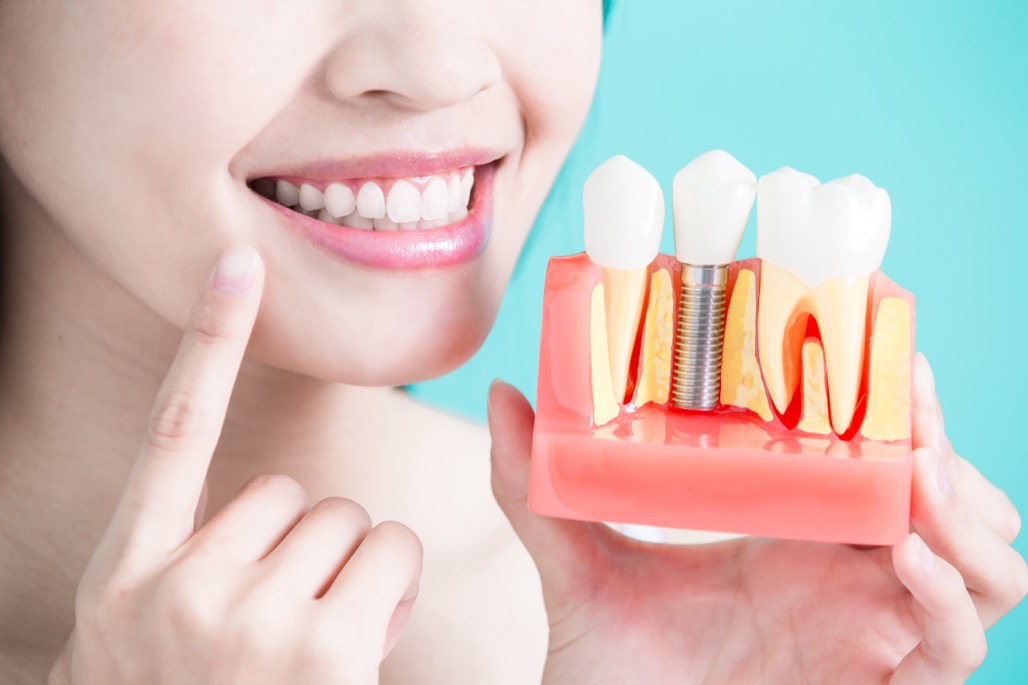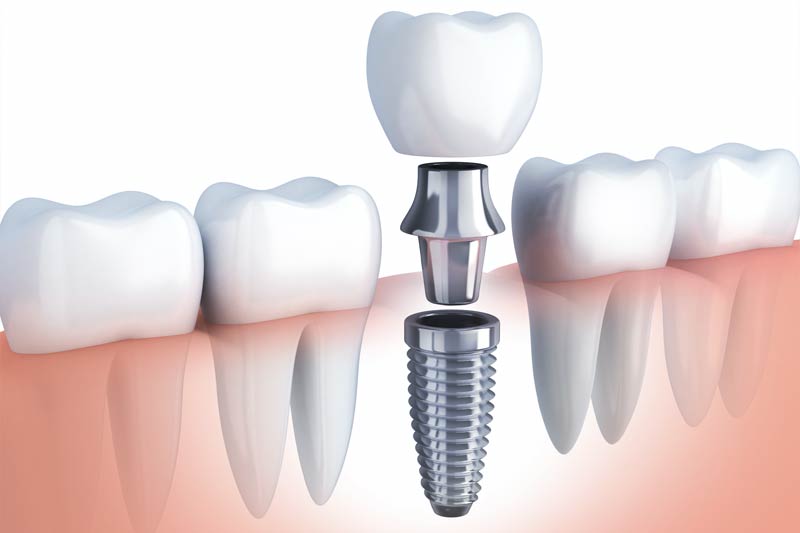
Dental Implants in Shirley
Dental Implants
Simply put, a dental implant is an artificial tooth root. A dental
implant takes the place of an extracted tooth root. The root is
surgically placed to hold an artificial tooth such as a crown or
bridge.
Most dental implants are made of titanium, a few are ceramic.
Titanium and ceramic are safe biocompatible materials that are friendly
to your mouth tissues.
Who might require dental implants?
You might require a dental implant if you lost a tooth or more as a
result of:
-
Cavities that caused tooth decay.
-
Fracture in the root of your tooth.
-
Bruxism (clenching or grinding your teeth).
-
Gum disease.
-
A dental injury that damaged the root of a tooth.
-
Congenitally missing teeth (for people who were born without
certain teeth).
Dental implant procedure
During dental implant surgery, your surgeon will:
-
Administer anesthesia. Your oral surgeon
administers local anesthesia to numb your gums. Sedation may or may not
be used. The patient and surgeon can agree on this. -
Create an incision. Once you are settled for the
procedure, your surgeon will make an incision (cut) in your gums where
the dental implant will go. This incision exposes the bone underneath so
your surgeon can place the implant. -
Prepare your jaw. Your surgeon will use modern
dental tools to create an opening in your jawbone. They’ll then widen
the opening until it is right to accommodate the implant. -
Place the dental implant. Next, your surgeon
will carefully place the dental implant into your jaw. -
Close the incisions. Finally, your surgeon will
reposition your gums and close the incision with stitches.
The dental implant process is nearly the same for everyone. The
slight difference is that a few surgeons place a restorative crown
immediately after the dental implant while most surgeons allow healing
to occur first before the crown is placed.
Dental implants will improve your speech and chewing ability while
also enhancing the appearance of your smile. To learn more about risks,
benefits, and recovery, call us for consultation.


